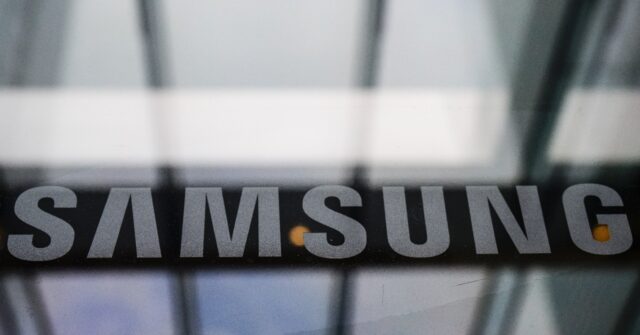Samsung Electronics Wednesday reported its fastest growth since 2010, with operating profits soaring for the second quarter, as chip prices bounce back and demand for generative AI continues to grow.
The world’s largest memory chip maker posted an operating profit of 10.44 trillion won ($7.5 billion) “as favourable memory market conditions drove higher average sales price” for the April to June period, it said in a statement.
It added that “robust sales of OLED panels”, used in creating digital displays, had also contributed.
The figure is a 1,462.29 percent jump from 670 billion won for the same period a year earlier, exceeding market expectations.
Sales rose 23.4 percent to 74 trillion won, Samsung said.
The firm is the flagship subsidiary of South Korean giant Samsung Group, by far the biggest of the family-controlled conglomerates that dominate business in Asia’s fourth-largest economy.
Semiconductors are the lifeblood of the global economy, used in everything from kitchen appliances and mobile phones to cars and weapons.
And demand for the advanced chips that power AI systems has skyrocketed thanks to the success of ChatGPT and other generative AI products.
Samsung is one of only a handful of companies worldwide that manufacture premium high-bandwidth memory (HBM) chips tailored for artificial intelligence processors.
Kim Jae-jun, executive vice president of memory, told reporters HBM sales were up 50 percent in the second quarter compared with the three months prior — and the company was increasing production capacity.
“We have secured nearly four times the volume of customer requests compared to the previous year,” he said.
Samsung said in a statement it would “actively respond to the demand for high-value-added products for AI and will expand capacity to increase the portion of HBM3E sales.”
Earlier this month, the company showcased the deployment of AI across a range of its consumer electronic products — including high-end health wearables — as it seeks to extend its leadership in global smartphone sales.
“Samsung Electronics’ high credit quality is supported by its robust earnings this year that are driven by an upswing in the memory chip cycle,” said Gloria Tsuen of Moody’s Ratings.
“The company’s AI chip development and strengthening foundry business will be key to its technological leadership and earnings over the next 12-18 months,” she added.
Semiconductors, strikes
Semiconductors are South Korea’s leading export and $13.4 billion worth were shipped in June, their highest level yet, accounting for a fifth of the country’s total exports, according to figures released by the customs service.
In April, the United States announced grants of up to $6.4 billion to Samsung to produce cutting-edge chips in Texas.
That same month, industry tracker International Data Corporation said Samsung regained its position as the top smartphone seller, wresting back the lead from Apple.
Samsung’s solid earnings come even as a union representing tens of thousands of workers at Samsung Electronics is staging an “indefinite” strike in a bid to force management to negotiate on wages and benefits.
Thousands of workers joined the strike at the outset, although it is unclear how many people continue to abstain from working.
Samsung said Wednesday it was “communicating and discussing to ensure that this labour union strike ends early,” adding there was “no problem with responding to our customer volume”.
But the union claims the work stoppage has had a negative impact.
“We’re getting reports from our members that it is affecting production,” Lee Hyun-kuk, vice president of the National Samsung Electronics Union, told AFP.
“The reason we are striking is clear, and we just want the company to bring suggestions that respect workers,” he added.
Samsung shares were up 1.2 percent in morning trade in Seoul.
Lim Su-jeong, associate director at Counterpoint said Samsung would likely end 2024 strong, with an upcoming collaboration with market-leader Nvidia “expected to be approved in the second half of the year.”
“Samsung is actively working to ensure that the strike ends early, so we expect there is a low possibility for the strike to grow into serious problems such as production disruptions unless the strike is prolonged,” Lim said.








